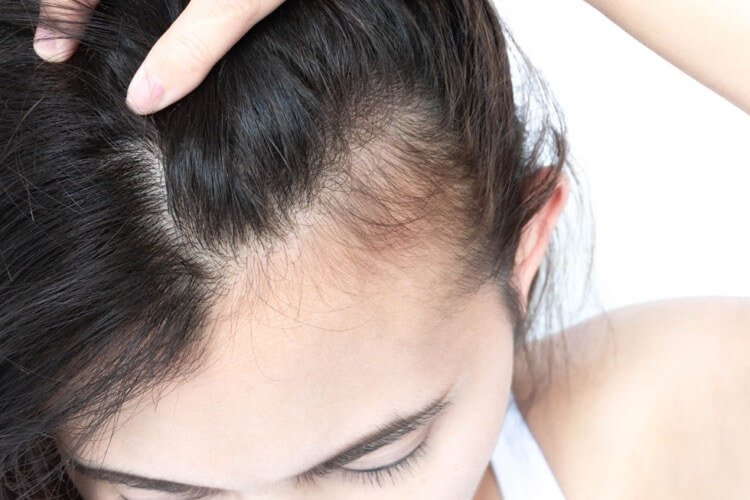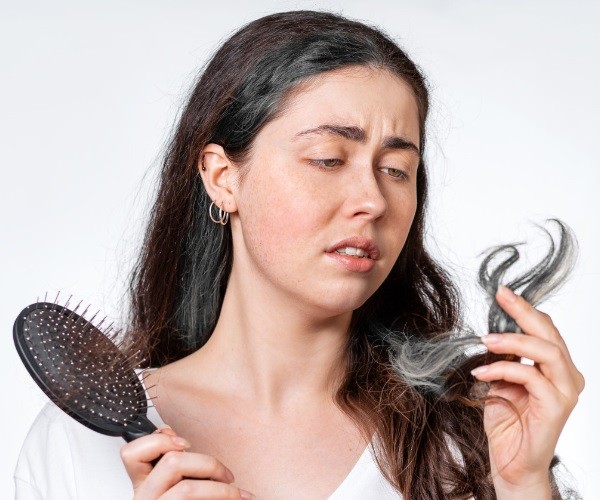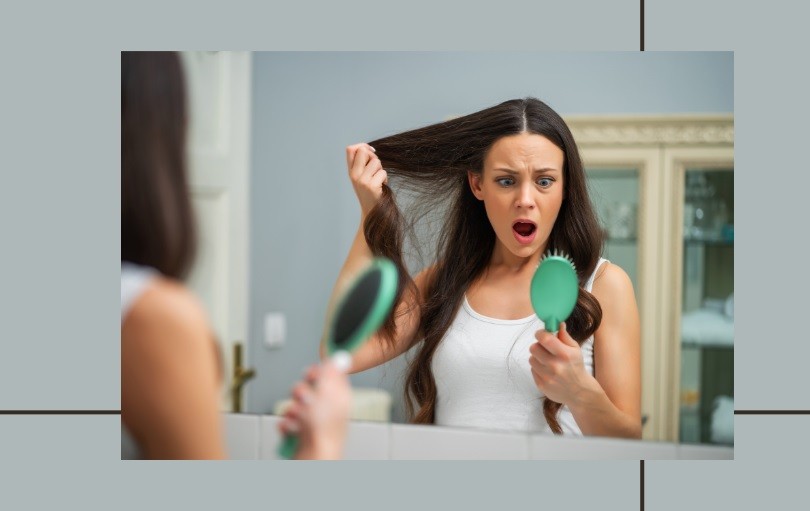Last Updated on March 28, 2025
Despite what you may have heard, spironolactone does not cause hair loss. This popular diuretic medication is often prescribed to treat conditions like heart failure and high blood pressure, but it can also help with hormonal acne. While spironolactone may help improve your skin, it won’t thin out your hair.
So if you’re experiencing hair loss, there’s likely another reason.

Is Spironolactone Good for Female Hair Loss?
Yes, spironolactone is good for preventing female hair loss. It is a medication that was originally designed to treat high blood pressure, but it has also been found to be effective in treating hair loss in women. Spironolactone works by blocking the hormone androgen from binding to the hair follicle, which can prevent hair loss.
Will Hair Grow Back After Spironolactone?
Yes, hair will grow back after spironolactone. This medication is a potassium-sparing diuretic, which helps the body get rid of excess water and salt. It’s often used to treat high blood pressure and other heart conditions.
One of the common side effects of spironolactone is hair loss. However, this is usually temporary and your hair should start growing back once you stop taking the medication.
Can Spironolactone Cause Shedding?
Shedding is a normal part of the hair growth cycle. Everyone sheds, and it’s nothing to be concerned about unless you lose more hair than usual. However, some medications can cause shedding as a side effect.
One of these is spironolactone, which treats conditions like hypertension and heart failure. While shedding from spironolactone is usually temporary and will stop once you stop taking the medication, it can be concerning if you’re not expecting it. If you’re taking spironolactone and experiencing excessive shedding, talk to your doctor about whether or not you should continue taking the medication.
Spironolactone for Hair Loss in Females
Spironolactone is a medication used to treat various medical conditions for over 50 years. In the last decade, spironolactone has become an increasingly popular treatment for female pattern hair loss (FPHL). While the exact mechanism of action is unknown, it is thought to work by blocking androgen receptors in the hair follicle.
This action reduces the production of testosterone and other androgens involved in FPHL. Several small studies have shown spironolactone to be effective in treating FPHL. In one study, 65% of women treated with spironolactone reported an improvement in their hair loss after 6 months of treatment.
While there are few side effects associated with spironolactone, the most common ones include irregular menstrual periods, breast tenderness, and headaches. These side effects typically resolve with continued use of the medication. Another study found that 78% of women who took spironolactone for 1 year had an overall improvement in their hair loss.
Spironolactone is a safe and effective treatment option for women suffering from FPHL. If you are considering this treatment option, discuss it with your doctor to see if it is right for you.
Does Spironolactone Change Hair Texture?
Hair texture is determined by the hair shaft’s diameter and the curl in the individual strands. The average human head has approximately 100,000 hairs, each with a different diameter and degree of curl. While many factors contribute to hair texture, such as genetics and age, diet and lifestyle also play a role.
Spironolactone is a medication that is sometimes used to treat conditions like acne, hirsutism (excessive hair growth), and hypertension (high blood pressure). Although the FDA does not specifically approve spironolactone for changes in hair texture, some dermatologists prescribe it off-label for this purpose. So does spironolactone change hair texture?
In general, spironolactone decreases the production of androgens (male hormones) in the body. Androgens can stimulate excess hair growth by reducing their levels; spironolactone can help slow down or even stop unwanted hair growth. Additionally, because androgens can also influence the diameter of the hair shafts produced, lowering their levels with spironolactone may lead to finer/thinner hairs being produced instead of thicker/coarser ones.
It should be noted that while spironolactone can be effective for some people in terms of changing hair texture, it doesn’t work for everyone. Additionally, it can take several months of treatment before any changes are seen. Finally, since androgens can also affect the amount of curl in individual strands of hair, reducing their levels may produce straighter hairs instead of curlier ones.
If you’re thinking about taking spironolactone for changes in your hair texture, discuss it with your dermatologist first to see if it’s right for you.
Pros Tips For Prevent Hair Loss When Using Spironolactone
Spironolactone is a medication commonly used to treat conditions such as high blood pressure, heart failure, and hormonal acne. While it is a beneficial drug, it may cause hair loss as a side effect. If you’re taking spironolactone and are concerned about hair loss, you can take some simple steps to prevent it.
We’ll discuss some of the tips for preventing hair loss when using spironolactone.

Understand the causes of hair loss with spironolactone
Spironolactone is a medication that blocks androgen receptors, which can lead to hair loss. Androgens are hormones that play a role in hair growth, and when they are blocked, hair follicles can become weaker, leading to hair loss. This type of hair loss is known as telogen effluvium, a common side effect of spironolactone. It is important to understand the causes of hair loss when using spironolactone to effectively prevent it.
Consult your doctor
The first step to preventing hair loss when using spironolactone is to consult your doctor. They can help determine whether your hair loss is due to spironolactone or another underlying medical condition. Your doctor may also recommend adjusting the dosage of spironolactone or switching to a different medication that doesn’t cause hair loss. If you’re experiencing hair loss as a side effect of spironolactone, it is essential to work with your doctor to find a solution.
Use a hair loss prevention shampoo
Using a hair loss prevention shampoo is an effective way to prevent hair loss when using spironolactone. These shampoos contain ingredients that help strengthen hair follicles and promote growth. Look for shampoos containing ingredients such as biotin, keratin, and zinc, which are known to prevent hair loss. It is also essential to choose a shampoo that is gentle and won’t further damage your hair.
Take hair supplements
Taking hair supplements can help to prevent hair loss when using spironolactone. These supplements contain vitamins and minerals essential for hair growth, such as vitamin D, biotin, and iron. By taking hair supplements, you can provide your body with the nutrients it needs to maintain healthy hair. It is essential to consult your doctor before taking any hair supplements to ensure that they won’t interact with your medication.
Avoid harsh chemicals and styling
Using harsh chemicals and styling tools can damage your hair and make it more susceptible to hair loss. When using spironolactone, it is essential to avoid harsh chemicals such as bleach and relaxers. It is also important to avoid heat-styling tools such as flat irons and curling irons, as they can further damage your hair. If you must use heat styling tools, use a heat protectant spray to prevent damage.
Massage your scalp
Massaging your scalp can help promote hair growth and prevent hair loss using spironolactone. Massaging your scalp can help increase blood flow to the hair follicles, promoting hair growth. It can also help reduce stress, which is a contributing factor to hair loss. You can massage your scalp with your fingers or use a scalp massager to help increase blood flow.
Conclusion
The bottom line is that spironolactone may cause hair loss in some people, but it’s not a common side effect. Talk to your doctor if you’re concerned about losing your hair while taking this drug.

